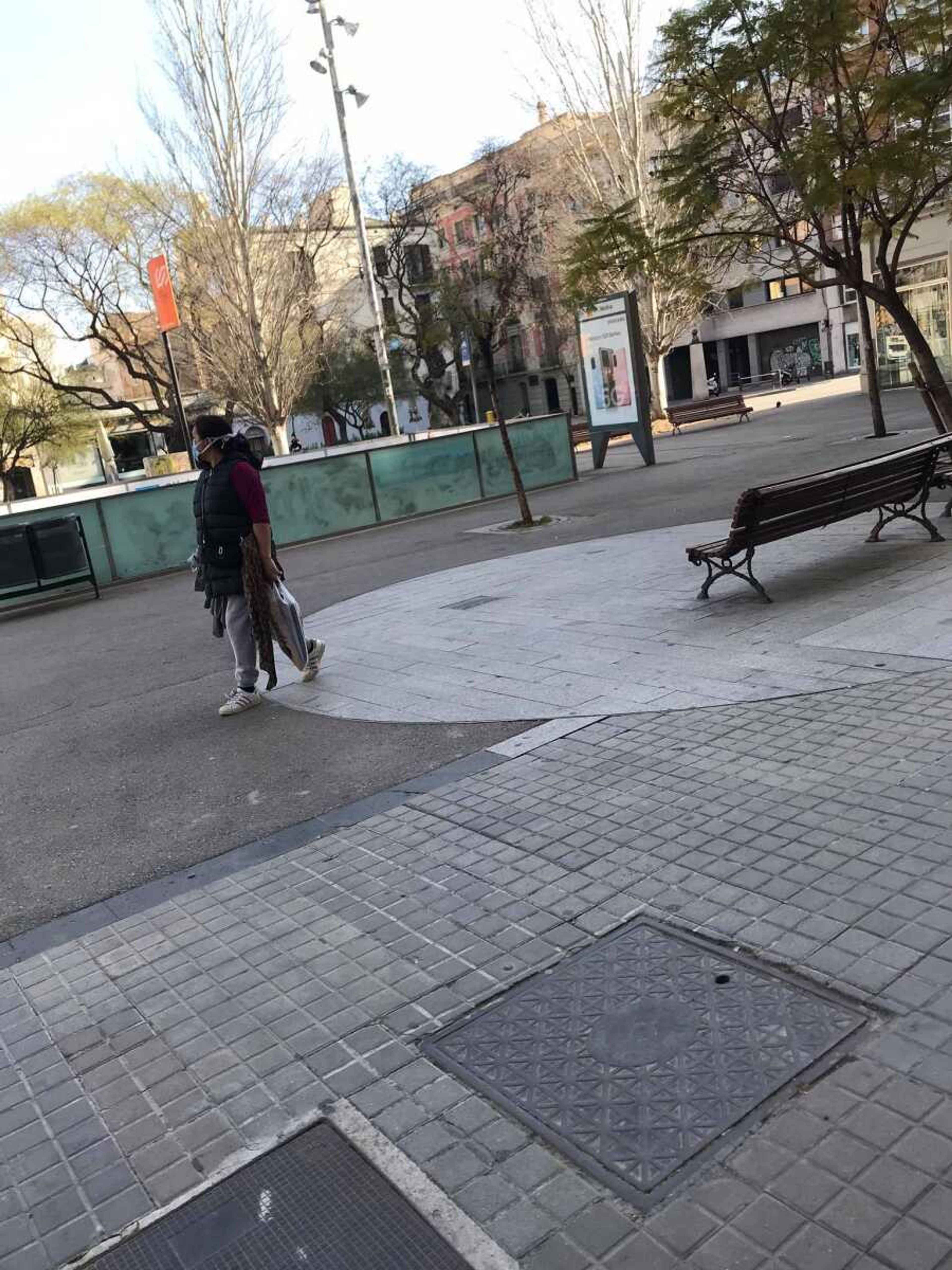Jackson native adjusts to life in Barcelona amid COVID-19 lockdown
Quedat En Casa, in Spanish, means “stay at home.” That’s exactly what I’m doing here in Barcelona, Spain, for nine days now. The normally crowded streets of this city, which boasts 9 million tourists a year, are eerily quiet. There’s no one waiting at the usual bus stops. ...
Quedat En Casa, in Spanish, means “stay at home.” That’s exactly what I’m doing here in Barcelona, Spain, for nine days now.
The normally crowded streets of this city, which boasts 9 million tourists a year, are eerily quiet. There’s no one waiting at the usual bus stops. There’s no one sitting on the sidewalk benches. There are few cars on the streets. Most businesses have their graffiti clad shutters closed. A few corner grocery stores and pharmacies remain open, as well as a handful of restaurants offering delivery only. If I do see someone else out, they’re wearing a mask, sometimes latex gloves, too. I don’t go out without a mask anymore either.
My Southeast Missouri friends, I feel like I’m writing this to you from the future, as the spread of Coronavirus here in Europe is several weeks ahead of the United States. In Spain, which is about the size of Texas, as of Sunday, there were 1,720 coronavirus deaths and 28,572 infections as reported in El Pais, the country’s largest newspaper. Most of those sick are near the capital city of Madrid, where on one day last week, someone died from the virus every 16 minutes. Cases continue to increase all over Spain and everywhere else.

The coronavirus seemed like China’s problem, then Italy’s. Now it’s everyone’s. I first felt the impact in mid-February, when a business trip I’d planned to the Nestle office in Milan was canceled after cases in the region jumped from 20 to 200 over the span of a weekend. I’d been going to Milan on a monthly basis and have close co-workers there who now have been on “lockdown” for over a month. Working from home, trying to also entertain their children whose school has been canceled indefinitely, and only allowed to go out only for basic necessities. In Spain, I’ve been in a similar situation, and now it’s been extended through Easter.
All of Spain is under a “State of Alarm,” which allows the government extra authority, including: restricting the movement of people, seizing private assets for public use, forcing Spain’s private health care clinics and workers to lend their services to the public system, and rationing basic goods.
Spain is a democracy, but has only been one since the late 1970s, and the political situation in Spain, specifically Barcelona, is a whole other column.
Most of Europe has asked its citizens to give up some personal freedoms for a greater good, and now some states in the U.S. are doing the same.
It’s much easier to focus on what we’re giving up than it is to find the good, but if you look, there are bright spots of joy in this difficult time.
Every night at 8 p.m., across Spain, people stand on their porches and balconies to clap and cheer and bang pots and pans in salute to health care workers on the front lines of fighting the coronavirus. I’ve been so encouraged by this nightly display of gratitude and solidarity.
Even though my Nestle co-workers and I can’t stand together in the office and chat around the coffee machine, or in our case the Nespresso machine, we do it virtually now by scheduling video chats with no agenda other than to see how everyone is doing on a personal level.
During one recent chat, we shared ideas for passing the time at home with puzzles, Lego sets, adult coloring books, even making glitter slime.
We all have more time at home now than ever, and it’s up to us to make that time count.
Along with what’s going on, or should I say not going on outside, these past days have been some of the most stressful in my job as part of Nestlé’s Global IT team. We’re scrambling to support more and more people connecting to our systems remotely to keeping our business going as they work from home. At Nestlé, we know millions of people and pets around the world are counting on our products for their nutritional needs every day. We can’t let them down and my team plays a critical role in keeping employees connected.
I don’t especially like working from home, so this transition, for me, has been tough. I’m still struggling to find balance and avoid stumbling from my bed to my computer and staying there in my pajamas until it’s time for bed again. I’ve been overwhelmed with communications projects related to the deployment of new remote working tools, network changes and overall tips for working from home. But I also find that having a lot of work to do, and knowing it’s helping people do their best work from home, helps keep me going and my mind from worrying.
As more restrictions are recommended in the U.S., I encourage you to focus not on the constraints or limits, but on the opportunities. Take advantage of the time to call a friend or relative to see how they’re doing. A heartfelt “thank you” to everyone who has sent messages to me, or my family to check on me. Use it to learn something new. I’ll be spending more time studying my Spanish. Find a way to help others. Maybe it’s getting groceries for a homebound neighbor or, like my mom, sewing masks for hospital workers.
Melissa Miller is a former business editor for the Southeast Missourian. A native of Jackson, she now works in Barcelona, Spain, for Nestle.
Connect with the Southeast Missourian Newsroom:
For corrections to this story or other insights for the editor, click here. To submit a letter to the editor, click here. To learn about the Southeast Missourian’s AI Policy, click here.











